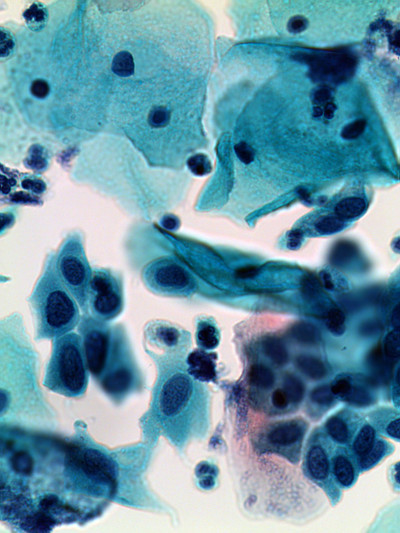Laboratory Services
P16
Print this pageUpdated Test Information:
| Test Description |
P16
|
|
|---|---|---|
| Specimen Type |
Formalin-fixed, paraffin-embedded tissue blocks (FFPE). If tissue blocks are not available, unstained slides are acceptable (please submit 1-2 slides per antibody to be tested, cuts must be 4 microns thick). |
|
| Specimen Collection / Processing Instructions |
Tissue removed during a surgical procedure and placed in 10% NBF soon after removal from the patient. Appropriate tissue for requested staining. |
|
| Required Information |
Complete the Incyte Diagnostics requisition with the patient's demographics and relevant clinical history. |
|
| Stability |
Ambient: Indefinite |
|
| Unacceptable Specimen Conditions |
Slides or paraffin blocks with no tissue remaining. Samples fixed in fixatives other than 10% neutral buffered formalin. Paraffin blocks that have been overheated or frozen. |
|
| Department (code) |
Histology |
|
| Methodology |
IHC, Ventana Ultra Stainer |
|
| Estimated TAT |
1–2 business days from receipt |
|
| Testing Schedule |
Monday–Saturday |
|
| Retention |
Blocks: 10 years |
|
| CPT Code(s) |
88341 |
|
| Additional Information |
Incyte Diagnostics uses the Roche CINtec Histology assay to assess p16INK4a protein expression by light microscopy in formalin fixed paraffin-embedded tissues. This test performed on the Ventana BenchMark Ultra immunohistochemistry instrument utilizes the mouse monoclonal antibody clone E6H4. When used as an adjunct to H&E examination the CINtec Histology test aids in the diagnosis of cervical intraepithelial neoplasia (CIN). Due to its important role in cell cycle regulation and cellular differentiation, overexpression of p16INK4a protein is indicative of certain high-risk human papilloma virus (HPV) infections in cervical, vaginal, and anal mucosa. In the case of head and neck squamous cell carcinoma, the overexpression can be used as prognostic indicator. |
|
| Clone |
E6H4 (Spokane, Tukwila, Richland) |
